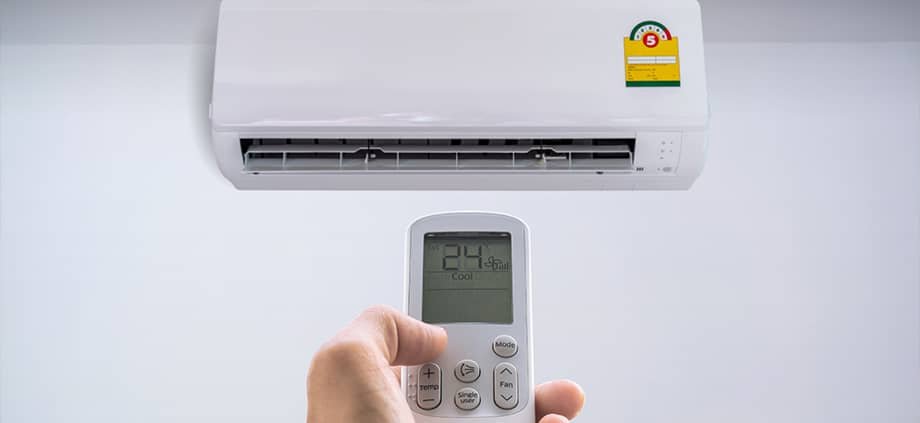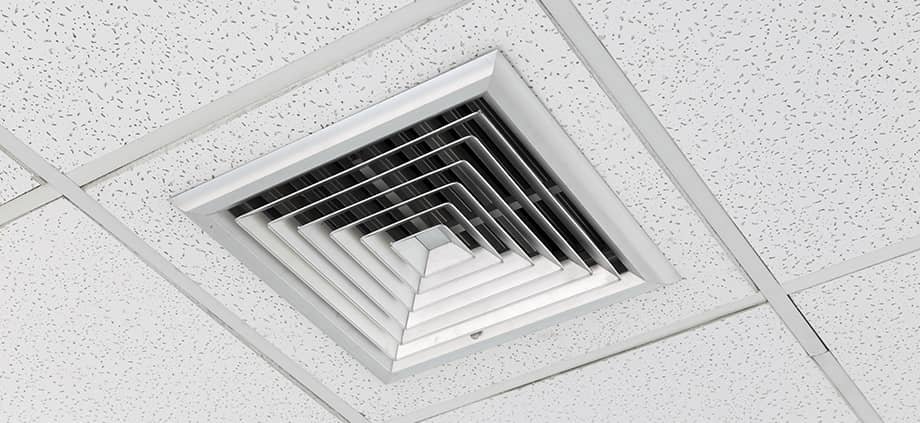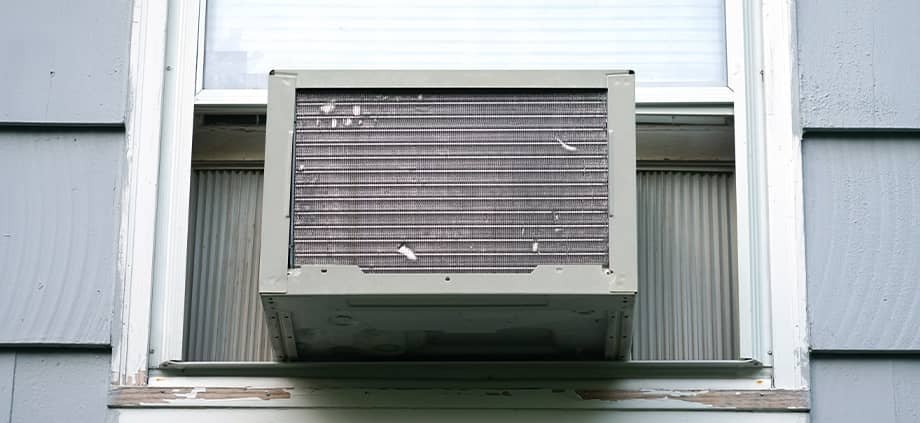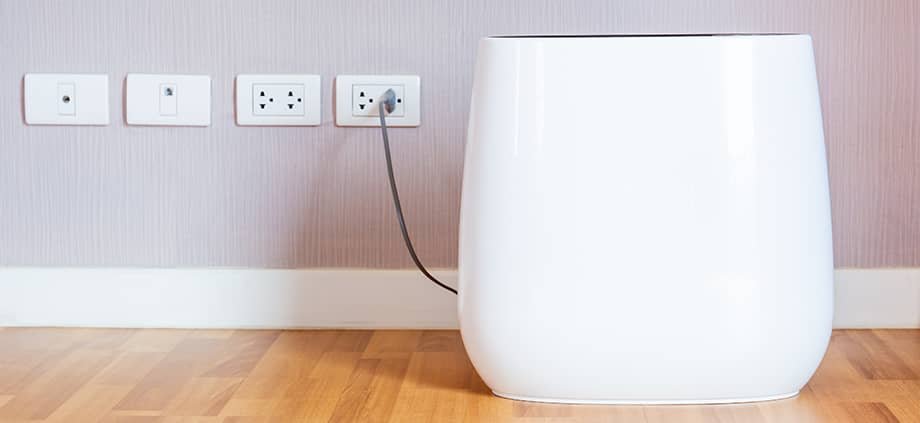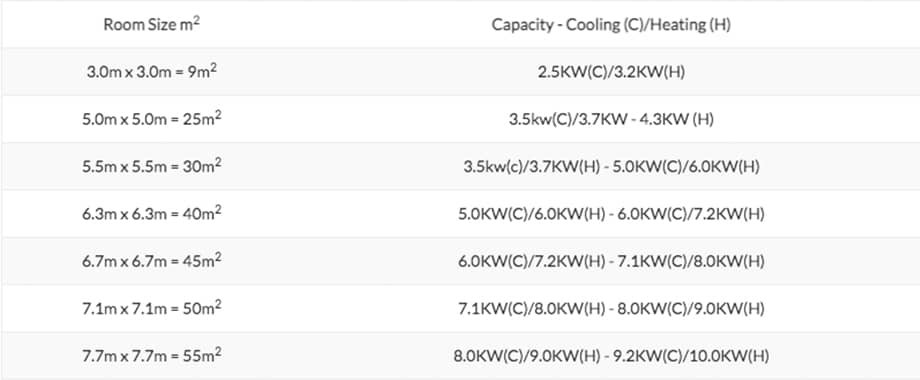Think your air conditioner is costing you a tonne of your hard-earned cash? Or are you looking to buy one and want to know the damage it’ll do to your energy bill?
Well, you’ve come to the right place! We’ve all been guilty of setting the air conditioner to 18 degrees (18°) to cool our home in the hot summer months, but it’s time you find out just how much it costs you.
This article dives into the annual cost of running your air-conditioning system and the factors that negatively affect your electricity bill. We’ve also got a few energy tips that’ll keep your home cool while saving money!


Contents
Annual Air Conditioning Cost by Temperature
We have calculated the annual air conditioner running cost of different cooling capacities at temperatures ranging from 21 to 24 degrees in the table below.
For calculation purposes, we used Ergon Energy’s Air Conditioner cost calculator and assumed a 6-hours daily run-time for 12 weeks at a rate of 26.6 cents per kWh, which is from our Average Cost Per kWh blog.
| Cooling Capacity | 21° | 22° | 23° | 24° |
|---|---|---|---|---|
| 2.5kW | $73.10 | $66.87 | $59.10 | $54.43 |
| 3.5kW | $122.25 | $111.85 | $98.84 | $91.04 |
| 5.0kW | $190.30 | $174.11 | $153.86 | $141.72 |
| 6.0kW | $234.42 | $214.47 | $189.52 | $174.56 |
| 7.1kW | $274.75 | $251.36 | $222.14 | $204.60 |
| 8.0kW | $312.55 | $285.95 | $252.71 | $232.75 |
| 10kW | $409.61 | $374.75 | $331.16 | $305.02 |
| 14kW | $630.15 | $576.52 | $509.49 | $469.26 |
It’s shocking to see how 1° can make such a difference! While it may not seem like much on an hourly basis, it’s evident that it can pile on and add a significant amount to your energy bill.
What Affects Your Air Conditioner Running Costs?
Let’s take a look at the critical factors that can impact how much your air conditioners costs you to run.
Type of Air-Conditioners
There are many different types of Air-Conditioning systems on the market, and they each have benefits and drawbacks. Each type of AC system is designed for different situations and could have a stronger impact on your electricity bill.
Split System
A split-system air conditioner consists of 2 components; an indoor and outdoor unit. The outdoor unit does the heavy-lifting to ensure the indoor unit has a smooth and quiet performance.
This air conditioning system is ideal for cooling rooms which are close together, thanks to its power and efficiency. But it’s not a viable solution to cool your whole house.
One split system unit would have to use more electricity to work harder to cool down a large space. This would prove to be ineffective and can significantly add to your energy bill.
So if you’re looking to cool the whole house, you may have to opt for multiple split systems.
Ducted System
A ducted air conditioning system has a central unit that’s usually hidden in the roof. The ducts connect to the central system and provide airflow through the air outlets in each room.
This system is perfectly designed for total home cooling and heating while also giving you effective control of the households’ temperature via a central thermostat.
A big house with several rooms may benefit from a ducted system, but it can cost a fortune to run! The more rooms you have, the more power your AC would use to cool down your home to your desired temperature.
While they can be expensive to install and use, it would be a worthwhile long term investment that’ll keep your whole house cool over the summer.
Wall/Window System
These are single box units that are either installed through the window or mounted onto the wall. They’re designed for cooling smaller rooms and offer an affordable option for your home.
While they have a lower investment cost, a wall/window system is very ineffective for total home cooling.
This system will not only cost you more for your electricity, but it won’t efficiently cool your entire home.
Portable System
If you’re looking for a quick fix to cool your home, then a portable AC system is the way to go. While it is relatively movable, it can be pretty noisy and can take up precious floor space.
Portable air conditioners aren’t very efficient when it comes to cooling big rooms. You’d also have to start the whole cooling process if you were to move to another room, which would only end up costing you more.
Temperature Setting
We can see how much temperature and cooling capacity can impact your air conditioning running cost from the table above.
Although 1 degree may not seem like much, it forces your air conditioner to use more electricity than required and can hurt your bank account.
So having your air conditioner temperature settings to the lowest in summer and highest in winter can significantly contribute towards an expensive energy bill.
Room Size – Which size is right for you?
Imagine using a tiny aircon to cool a massive room? It’s just not going to work! You’re probably better off staying in the shower all day!
An air conditioners’ cooling capacity and room size are two factors that must work together to cool your home effectively.
An air conditioner with a small cooling capacity in a big space may require more electricity to cool the room, which may cost you more. But an air conditioner with a high cooling capacity in a small room may be overperforming, thus using more energy than required.
So it’s wise to pick an aircons’ cooling capacity based on the size of the room you wish to use it in. The table below indicates an air conditioners’ cooling capacity that will be efficient and effective for a room’s size.
* This is an approximated general guide of air conditioner capacity to room size from Harvey Norman.
Duration
As with any appliance, the longer you use it, the more it’ll cost you. And it’s the same for running your air conditioner!
Prolonged use of your AC system would add a significant amount to your electricity bill as opposed to a household that uses it for an hour a day.
Number of People
The number of people in the household can also impact your air conditioning running cost as an individual’s body heat can affect the room temperature.
A room with more people is more likely to take a long time and use more electricity to cool than it would with a space of fewer people.
What’s Cookin’ in The Kitchen?
It’s always hotter in the kitchen when you’re cooking up a storm! The kitchen will almost always be hotter.
The steam from hot food can cause the temperature of your home to rise. So your AC system has to use more electricity to combat the heat of your kitchen.
Air Con Energy Saving Tips
Now that we’ve seen a few factors that can affect your air conditioning running cost, let’s check out some tips that might help you save on your energy bill while keeping cool!
Energy Efficiency Rating
The above picture is an example from the Energy Rating website; energyrating.gov.au
You’ve most certainly seen the energy efficiency rating labels on most appliances, so you know that the more stars it has, the more energy-efficient it is!
The energy star rating labels give you the appliances’ energy efficiency star rating to compare against similar products.
An air conditioner with a high energy efficiency rating is more efficient and uses less power, resulting in a lower expense on your energy bill.
Optimal Temperature Setting
We’ve all been guilty of cranking the air conditioner down to 18 degrees in the Summer! But in reality, it’s unnecessary and a waste of money.
Maintaining a consistent temperature of 22 to 24 degrees throughout the day ensures that your AC system is not consuming more electricity than required to keep your home cool.
Alternative Options
A dehumidifier is a great alternative to use to cool your home in humid weather. Most dehumidifiers are portable and cheap, giving you a fast solution to combat the heat.
Other great options are portable or ceiling fans. It’s energy-efficient and effective at cooling your room. While you’d have to have a fan for each room, it’s still a cheaper alternative than an AC.
Proper Cleaning and Maintenance
A poorly maintained AC system is more likely to use more electricity to compensate for its inefficiency. So it’s essential to regularly clean your air conditioners’ filter to ensure no cold air blockage.
Proper cleaning and dusting of vents and exterior components allow the air conditioning unit to efficiently cool your home.
Home Insulation
Home insulation is a crucial aspect of every household. You need it to keep your home warm in winter and cool in summer.
So ensuring your home is adequately insulated helps circulate the cold air around the house and prevent it from escaping.
Close The Curtains
Here we have a simple yet effective tip! We all try finding some shade outside to escape the heat.
So closing your curtains when the aircon is running helps cool down the room much quicker than it would if the window was uncovered.
The faster the room cools down to the perfect temperature, the shorter you’ll use your air conditioner and the less it’ll cost you!
How bout a Sharper Energy Deal?
You might be paying too much for your electricity! If you know that you’ll use your aircon for long periods, then you might be better off switching to a cheaper energy deal!
Check out our articles on the top 10 best electricity deals in Victoria, New South Wales, South Australia, South-East Queensland and Canberra!
Want To Make The Most Of The Sun?
If you’re a heavy user of your air conditioner, then maybe going solar could be the perfect solution for you. It’ll mean that the energy your AC unit uses to cool your home comes from the very thing that makes the weather hot!
While going solar can be expensive, it’s a worthwhile investment that could end up saving you money for your electricity.
Check out our articles on Solar Feed-in Tariffs, and the rates retailers offer in VIC, NSW, QLD, SA and ACT!
Happy With How Much Your Air Conditioner Costs You To Run?
There you have it! We’ve given you the lowdown on how much your aircon could be potentially costing you and the factors that can significantly add to your electricity bills.
These energy-saving tips are an excellent way to still cool your home without having to compromise on how long you use it for.
Chill out with the air conditioner in the sweltering summer period without stressing how much it costs you! Looking for a cheap electricity deal to accommodate your high air conditioning usage in the summer months? Call us on 1300 232 848, and we’ll help you get a sharper rate!
Disclaimer:
Important Notes To Consider:
- The 26.6 cents per kWh is the average rate in Australia based on our blog on the Australian states average kWh of electricity.
- For calculation purposes, we assumed a air conditioner run-time of 6 hours daily for a 12 week time period.
- The information in this blog cannot substitute for legal advice. No financial decisions should be made based on information from this blog.
- This data is accurate as of 12/02/2021
Get a $50* Coles or Woolies Voucher
When You Call & Switch Today
- Compare Providers
- 100% Free Service
- Brokered Over 150,000 Deals
Benjamin Tom
Benjamin Tom covers the retail energy market, with a focus on electricity, solar, and Internet. His interests include helping people navigate the complexities of the energy market while saving money on their power bills.
